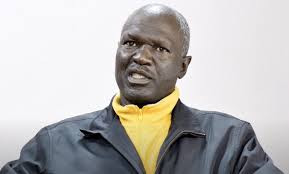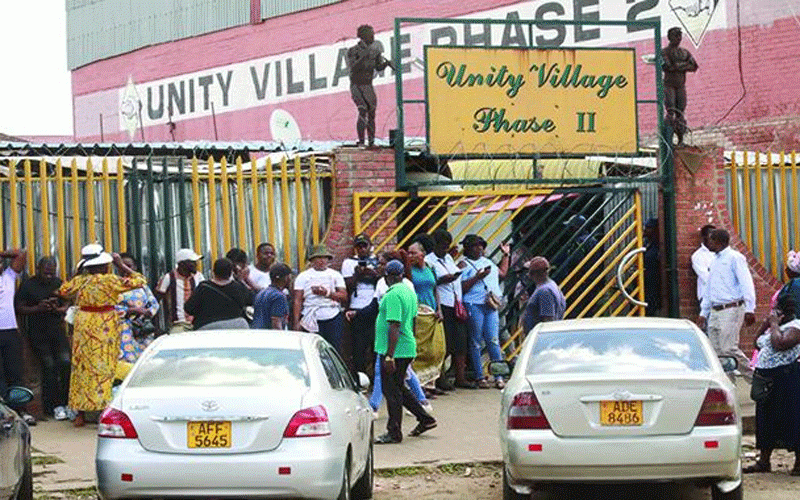MEN in Zimbabwe, like elsewhere in the world, are susceptible to prostate cancer. Yet ironically, men's awareness of the disease, its signs and symptoms, screening methods and the age groups predisposed to the risk of the disease has remained poorly understood.
A lot of prostate cancer research has been going on worldwide and most studies established that men's awareness and comprehensive knowledge about prostate cancer is very low and marred with misconceptions. Informal sources of communication, especially friends, relatives, colleagues continue to be the major sources of information about prostate cancer, while formal sources are passive.
Talk Cancer Zim, cancer organisations and health professionals have a huge responsibility to rescue men from the catastrophic trap so that they freely enjoy their rights to good health and get timely, relevant, useful and correct prostate cancer information.
There is need for accelerated information, education and communication regarding male reproductive cancers to cater for the welfare of men given that they are drivers of national economies in their various capacities.
Failure to do so would mean that men's reproductive health-seeking behaviour regarding early screening and treatment for prostate cancer will remain compromised.
Prostate cancer does not wait neither should we. Early detection is the best bet for your health, go and get screened.
Keep Reading
- We all have a role in fighting cancer
- Early detection, treatment saves lives
- Male breast cancer,the untold story in Zimbabwe
- Cancer foundation targets flea markets, salons
What is prostate cancer screening?
This is when an apparently healthy men visits the doctor to be examined for prostate cancer in an attempt to achieve an earlier diagnosis.
What are the benefits?
The benefits of screening for prostate cancer may include finding prostate cancers that may be at high risk of spreading, so that they can be treated before they spread. This may lower the chance of death from prostate cancer in some men.
For every 1 000 men between the ages of 55 and 69 years old who are screened, about one death will be prevented and three men will be prevented from getting prostate cancer that spreads to other places in the body. Many men with prostate cancer never experience symptoms and, without screening, would never know they have the disease. There really is need to create a culture where everyone knows that an annual routine conversation with a doctor including shared decision-making prostate cancer screening could save a man’s life.
What methods are used
Two commonly used tests are the PSA blood test and the digital rectal examination. However, these tests, used separately or in combination, can only indicate changes in the prostate gland. They are not diagnostic tests. If either test shows an abnormality, your general practitioner will refer you to a urologist for further evaluation.
PSA test
Prostate specific antigen (PSA) is a protein made by both normal prostate cells and cancerous prostate cells. PSA levels are measured using a blood test. The PSA test does not specifically test for cancer. A PSA reading above the typical range for your age may indicate the possibility of prostate cancer.
However, only an average of one in three men with an elevated PSA level has cancer. The amount of PSA in blood can be raised even when a man does not have cancer. Other factors that can increase PSA levels include benign prostate hyperplasia (BPH), recent sexual activity or an infection in the prostate. Because PSA levels can vary, doctors will often use results from more than one blood test, over time, to help determine a man’s risk of prostate cancer. Your doctor will also compare your PSA result against other men of the same age group.
Digital rectal exam
In a digital rectal examination (DRE) a doctor inserts a gloved finger into your rectum to feel the back of the prostate gland. The doctor feels the size of the prostate and checks for abnormalities. The DRE may be uncomfortable, but is rarely painful. If your doctor feels a hardened area or an odd shape, further tests may be done. Abnormalities do not always indicate prostate cancer and a normal DRE does not rule out prostate cancer.
At what age should i get screened?
Even though the country has not yet established a national prostate cancer screening programme, men are encouraged to go for screening even though we do not have our own screening recommendations. In some countries, men are recommended to go for screening starting at age 55. You may need screening between the ages of 40 and 54 if you have at least one first-degree relative (such as your father or brother) who has had prostate cancer, have at least two extended family members who have had prostate cancer . In other countries, men need to commence screening at the age of 50 years.
Obviously, the question of screening is a personal and complex one. It’s important for each man to talk with his doctor about whether prostate cancer screening is right for him. The discussion will include a man’s level of risk, his overall health, life expectancy, and his desire for eventual treatment if he is diagnosed with prostate cancer. It’s important to consider timing. When to start screening is generally based on individual risk.
In conclusion
There is need for more awareness campaigns on prostate cancer, the more the conversation on screening is emphasised, the greater the uptake. There is need to create a culture where every man knows that going for screening could save a man’s life. The key message should be early detection and treatment saves lives.
But men can’t do it alone, there is now an urgent need to establish a national prostate cancer screening programme with guidelines that our Zimbabwean men can confidently follow and abide by and there is need to avail more resources towards prostate cancer screening services.
Ideally if all central, provincial and district hospitals can offer these services, it will go a long way in reducing mortality due to prostate cancer, and these services should be affordable and accessible to every man in Zimbabwe .
Prostate cancer does not wait, neither should we. The earlier you get a diagnosis, the higher your chances of survival. Go and get screened, early detection and treatment saves lives!
Michelle C Madzudzo is a radiation therapist and Talk Cancer Zim founder





